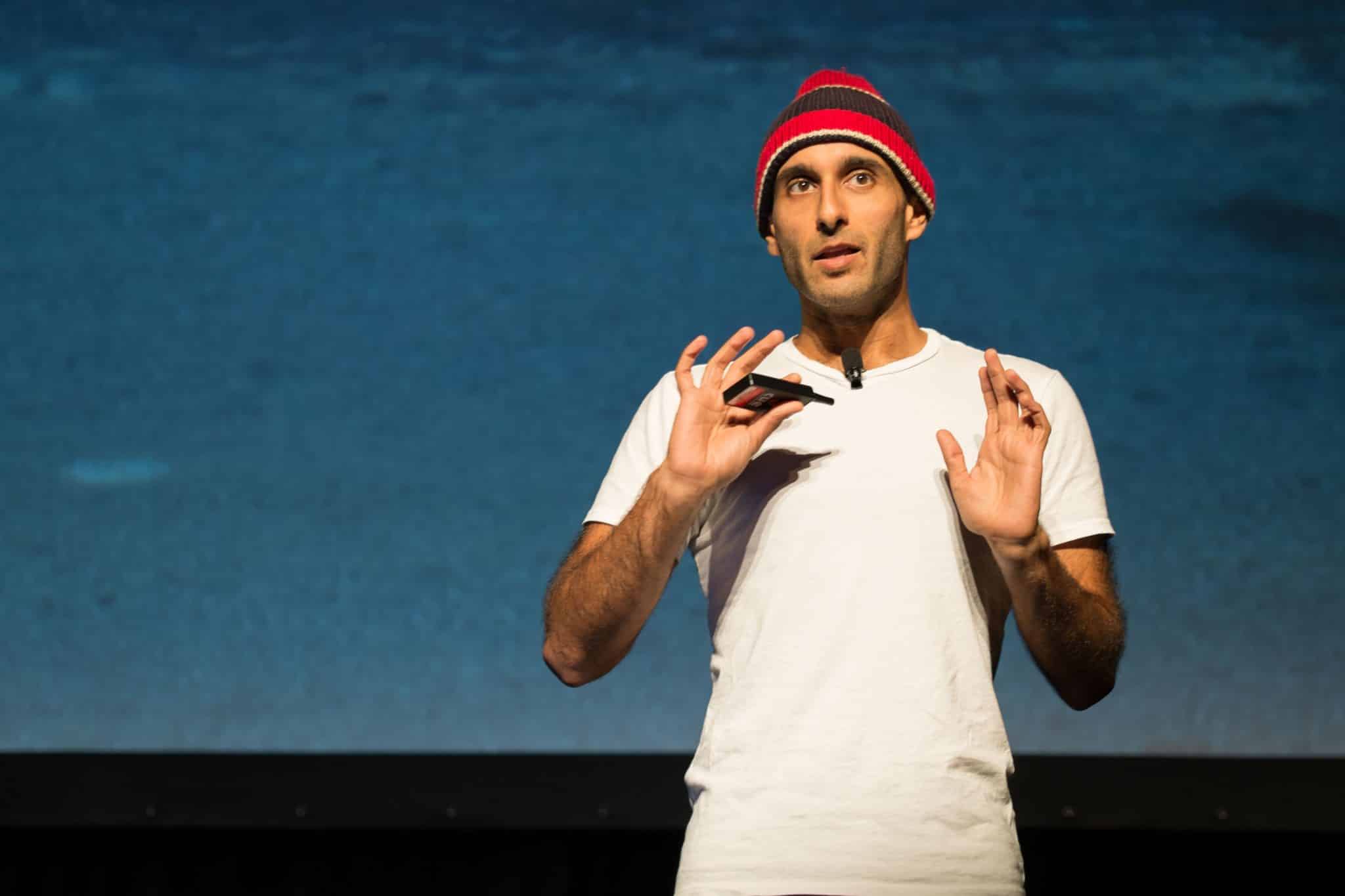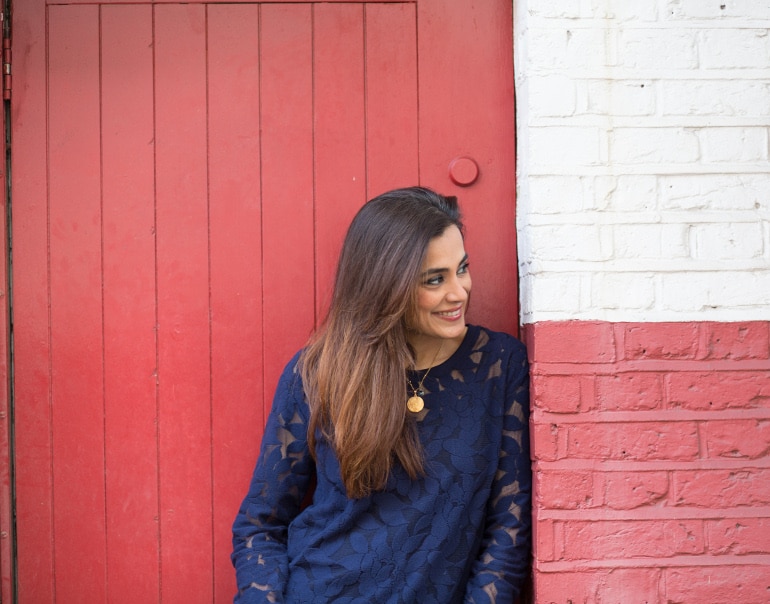PhD-writing expert, Amber Jane Davis, on staying focused, motivated, and connected

PhD-writing expert, Amber Jane Davis, on staying focused, motivated, and connected

Women’s History Month may be over, but we don’t think it’s ever a bad time to share the stories and advice of some of the brilliant women in our Freedom community who are using their freedom to shape the world every single day.
Meet Amber Jane Davis. Political scientist, PhD coach, and hardcore academic.
Learning from her own personal struggles of writing a PhD while recovering from Lyme disease, Davis was able to create the six-week HappyPhD Online Course, which coaches PhD students through all the typical pain points of writing a PhD. Her course focuses on creating sustainable working routines, improving focus, handling the emotional toll, and staying motivated.
If you’d like to learn more about Amber, her story, or her classes – click here.
First of all, how did you break into your industry – how did it all start for you?
I stumbled into academia by chance. I studied at the London School of Economics for a year, and I did much better than I thought I would. My mentor at the time encouraged me to consider staying in academia. At one meeting he even exclaimed: ‘I know what you’re going to do with the rest of your life: You’re going to be a professor! You are an academic if I’ve ever met one!’ That said, I didn’t plan for the future in that way at all: I gave applying for a PhD position a try on a whim after the LSE degree ceremony when someone mentioned a PhD opportunity to me. Shouldn’t I consider applying? I got the PhD position, and it was a good fit. The academic route became difficult after I fell ill with a chronic disease. There’s no way I could work a ‘normal’ job anymore. I needed something more flexible, something that would allow me to work on my own time. That’s when I decided to start my coaching business.
What are some the biggest challenges you have faced as a woman in your industry and how have you dealt with them?
In my work as an academic coach I’ve not encountered gender challenges, but in academia I have, and the worst was probably the ‘two-body’ challenge of being in a long-distance relationship. How to make this work? When my boyfriend accepted an academic job offer in Chicago things got even more complicated. My (male) supervisor at the time was not too keen on granting me permission to leave and live with my boyfriend for a bit, even though my research was location independent. I remember thinking it was easy for him to say: his wife and kids had followed him to Italy. That wasn’t the case for me! I felt both of them were expecting me to conform to their view in which career trumps relationships, and no matter the choice I made the problem and sacrifice would be mine. In the end I decided to go to Chicago anyway, no matter my supervisor’s opinion (though ironically, the Chicago trip fell through in the end, but that is an entirely different story). It felt good to do what I wanted…and my supervisor came around when I was firm about it.
How do you stay motivated and focused on a daily basis? Do you have a routine, process, or place that helps to get into a productive flow?
I have a routine. I work more loosely now, but when I was finishing my PhD I had quite a strict work rhythm. I started at 10:00 no exceptions and finished at 15:00 no exceptions. I worked in 45-minute chunks in the morning, and a 90-minute one in the afternoon, all with short breaks in between. This worked tremendously well, and it is that way of working, of working in ‘waves’ in which you really challenge yourself, with windows of relaxation in between, that I now teach my clients.
What are some of your biggest distractors that prevent you from doing some of your most important work and how do you conquer them?
The internet! I have a technique to get centered and concentrated, which I use to gently coax myself into work. Basically I ask what the next most important thing to do is (forget about long to do lists), and what I can get done in the next work session. Then I do it. Making it doable, and being curious about the work is what helps most.
What is the most rewarding aspect of your work?
Working with people. It’s what I missed most when I was still in academia as an academic: the connection, not only on an intellectual level, but on a human one.
What resources or tools do you use on a daily basis that you have found useful to your process?
I love my iMac and I tend to use Scrivener as my word processor, though I wrote my PhD in Word. I like DayOne too, for personal notes and reflections. It feels much more casual in use, so I write freely there. I use Freedom and an online timer to streamline my work sessions. Oh and Skype of course, for the coaching calls I do. All of those, and my little black desk to sit at, and a big mug of tea, probably jasmine or something herbal.
What advice would you give less experienced women that want to pursue a similar career path or that are simply just beginning their careers?
Find your people. I always thought the ‘It isn’t what you know, it’s who you know’ adage shallow advice, verging on the cynical. But I have come to realize that even in academia, when you’re in the field of creating knowledge and your work is mostly solitary, people matter more than anything.
What excites you most about your industry?
How smart everyone is. I like big brains.
What project are you currently most excited about?
That would have to be my online course. It helps academics, Ph.D. students specifically, to create a work routine, and to overcome a range of common obstacles inherent to academic work. It is based on my own experience of having to finish my Ph.D. in trying circumstances, where I learned a lot about being more effective and efficient, and kinder to myself as well. I really poured my heart into that course.
Where are you currently based?
I’m in Amsterdam. Thankfully I can work wherever, though. Last year I spent two months in California, next year it may be somewhere else. I always enjoy a change of scenery.



